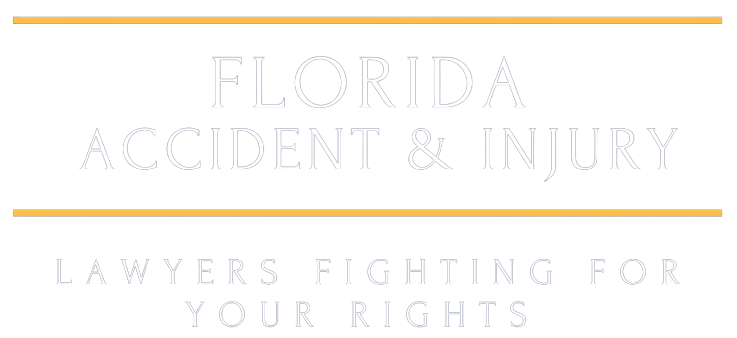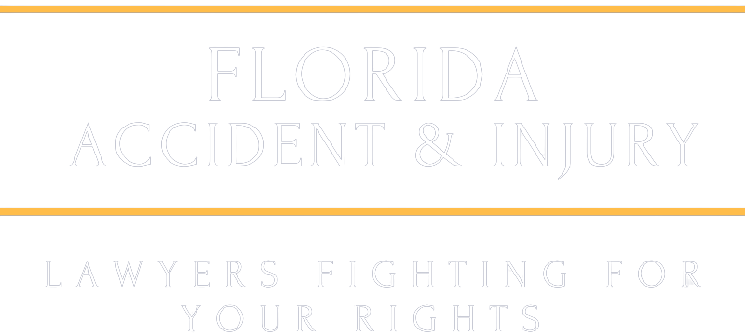
What Florida Workers Need to Know About Disability, Wages, and Job Protections
Navigating workplace rights in Florida can be complex, especially when dealing with disability, wages, and job protections. For workers facing challenges like unfair treatment, navigating legal protections can feel overwhelming. Florida laws and federal regulations provide essential rights for employees, but understanding these laws is critical for those unsure about how to proceed after an employer’s wrongful actions. Understanding the legal landscape is especially important for those who have experienced discrimination, wrongful termination, or wage disputes. While state and federal laws bind Florida employers, violations still occur, leaving workers vulnerable to exploitation. By learning about their rights and seeking legal advice, employees can take the necessary steps to protect their livelihoods and ensure fair treatment in the workplace. Rights for Workers with Disabilities in Florida Workers with disabilities in Florida are protected under the Americans with Disabilities Act (ADA) and Florida’s Civil Rights Act. These laws ensure fair treatment and reasonable accommodations in the workplace for individuals with qualifying disabilities. Employers must make efforts to provide accommodations unless doing so would impose an undue hardship on their operations. Common reasonable accommodations include: Modifications to work schedules or duties Providing assistive devices or technology Adjustments to workplace policies to accommodate medical needs Failing to provide reasonable accommodations could lead to legal consequences for employers. Moreover, while it may be possible to work while on disability, workers need to understand how their benefits could be affected. The Social Security Administration has programs like “Ticket to Work” that allow limited earnings without losing benefits, but clarity on these programs is essential to avoid missteps. Employees with disabilities also have protection against retaliation. Employees who request accommodations or file a complaint cannot be punished or terminated legally. Documenting discrimination or retaliation is vital in building a strong legal case. Wage Protections: Understanding Florida’s Minimums Florida workers are entitled to fair wages under state and federal laws. The state’s minimum wage is adjusted annually based on inflation. In 2025, the minimum wage for servers in Florida is $9.98 per hour, significantly lower than the standard minimum wage. Employers are responsible for ensuring that tips meet or exceed the standard minimum wage when combined with an hourly wage. Violations of wage laws can include: Failing to pay the correct wage Withholding or distributing tips unfairly Not paying overtime for eligible employees Workers in the restaurant and service industries are especially vulnerable to wage violations. Employers sometimes misclassify workers or use other tactics to avoid paying their full earnings. A workers’ comp attorney in Florida can also help in cases where wage violations intersect with injury claims, ensuring the pursuit of proper compensation on all fronts. Employees should keep detailed records of their hours, wages, and any correspondence with employers to verify claims. These records are crucial in demonstrating violations during legal proceedings. Protections Against Wrongful Termination Wrongful firing laws prevent employers from terminating employees for illegal reasons. While Florida is an “at-will” employment state, meaning an employer can terminate a worker for almost any reason, there are exceptions. Discrimination, retaliation, or dismissal violating contractual agreements or public policy are considered wrongful termination. Examples of wrongful termination include: Firing due to race, gender, disability, or religion Terminating an employee for reporting workplace safety violations Retaliating against an employee for filing a workers’ compensation claim Employees who suspect they were fired without cause must act quickly. Documenting the circumstances surrounding the termination, including any related incidents or communications, can strengthen a legal claim. Consulting a wrongful termination attorney in Florida is often beneficial when navigating these complex claims. Wrongful termination can also have emotional and financial impacts. Many workers feel powerless after losing their jobs unfairly. Understanding legal rights and pursuing justice through official channels can help restore dignity and provide financial relief. How Workers’ Compensation Intersects with Job Protections Workers’ compensation provides financial and medical benefits to injured employees. In Florida, it is illegal for an employer to fire an employee solely for filing a workers’ compensation claim. This protection ensures that employees feel secure seeking the benefits they are entitled to without fear of retaliation. However, some employers may attempt to disguise retaliatory actions, such as: Reducing hours or reassigning duties after a claim Creating a hostile work environment to pressure the employee into quitting Claiming the termination is based on unrelated performance issues Employees experiencing these actions should consult legal counsel immediately. Proving retaliation can be challenging but not impossible. Gathering evidence, such as performance reviews, witness statements, and correspondence, can support claims in court or through mediation. Additionally, workers’ compensation cases can involve disputes over benefits, such as medical expenses or lost wages. Workers’ comp attorneys in Florida can help workers secure their rights and challenge unfair denials or delays in receiving benefits. Ensuring Fair Treatment for All Employees Florida workers have the right to a fair and equitable workplace, free from discrimination, harassment, or retaliation. Employers are required to adhere to state and federal employment laws, but violations are not uncommon. Workers facing unfair treatment must take proactive steps to protect their rights. Common reasons for workplace disputes include: Denied requests for medical leave under the Family and Medical Leave Act (FMLA) Sexual harassment or hostile work environments Misclassification of employees as independent contractors to avoid paying benefits Employees can file complaints with agencies like the Equal Employment Opportunity Commission (EEOC) or the Florida Commission on Human Relations. These complaints often serve as the first step in pursuing legal action. Legal representation can clarify filing deadlines, evidence collection, and potential outcomes. Preventing unfair treatment starts with knowledge. Workers who understand their rights are better equipped to identify violations and hold employers accountable. Advocacy groups and legal professionals are valuable resources for those seeking to learn more or pursue claims. Building a Case for Justice: Legal Remedies for Florida Workers Florida workers who face wrongful termination, wage violations, or disability discrimination often experience significant stress and uncertainty. However, understanding the laws designed to protect employees provides a pathway to justice. Legal remedies may



